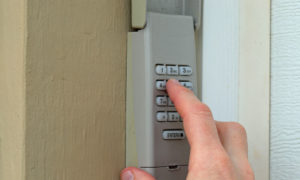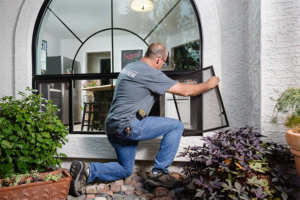3 Reasons Why Your Garage Door Springs May Break

If you’re like most homeowners, you probably don’t pay much attention to your garage door springs until they fail. But when they do, it can be a real headache. Garage door spring issues are common, and they can happen suddenly, leaving you stranded with a non-functional garage door. In this blog post, we’ll explore three key reasons why your garage door springs may break, shedding light on the importance of prompt garage door spring repair in Smithfield.
- Wear and Tear Over Time
One of the most common reasons for garage door spring failure is simple wear and tear. Your garage door springs are under a tremendous amount of pressure each time the door opens and closes. Over time, this stress takes its toll, causing the springs to weaken and eventually break. Springs have a limited lifespan, typically rated for a certain number of cycles. Once they reach this limit, they become more susceptible to breaking.
Regular maintenance can help extend the lifespan of your garage door springs. Lubricating them and checking for signs of wear and tear can make a significant difference. However, when the springs have been in use for many years, it’s inevitable that they will eventually require replacement.
- Rust and Corrosion
Garage door springs are often exposed to the elements, making them vulnerable to rust and corrosion, particularly in humid or coastal areas. When springs begin to rust, they become weaker and more prone to breaking. It’s essential to inspect your garage door springs regularly for signs of corrosion, such as reddish or brownish patches on the surface.
Preventing rust and corrosion is crucial to prolonging the life of your garage door springs. Applying a rust-resistant coating or using stainless steel springs can help in areas with high humidity or exposure to salty air. However, if you do notice signs of rust, it’s advisable to contact a professional for garage door spring repair Smithfield before the problem worsens.
- Poor Installation or Mismatched Springs
In some cases, garage door springs break due to improper installation or the use of mismatched springs. This can occur when a well-meaning homeowner attempts to replace the springs themselves or when an inexperienced technician installs the wrong type of springs.
Garage door springs come in different sizes and strengths, and it’s crucial to use the right ones for your specific door. Installing the wrong type or size of springs can lead to premature failure and potential safety hazards. If you suspect that your garage door springs were improperly installed or if you’re unsure about their compatibility, it’s best to consult a professional to ensure they are correctly matched and installed.
FAQs:
- How can I tell if my garage door springs are wearing out?
- Look for visible signs of wear and tear, such as gaps or separation in the springs.
- Listen for unusual noises like creaking or squeaking during door operation.
- Pay attention to a door that doesn’t stay open or closed and seems unbalanced.
- Can I replace garage door springs on my own, or should I hire a professional?
It’s recommended to hire a professional for garage door spring replacement. Garage door springs are under high tension and can be dangerous to work on without the proper tools and knowledge. A trained technician can ensure the job is done safely and correctly, preventing potential accidents.
In conclusion, understanding why your garage door springs may break is essential to prevent inconvenient and costly failures. Whether it’s due to wear and tear, rust, or poor installation, addressing these issues promptly with garage door spring repair in Smithfield is crucial for maintaining the functionality and safety of your garage door. Regular maintenance and professional assistance can go a long way in preventing unexpected spring failures and ensuring the longevity of your garage door system.






